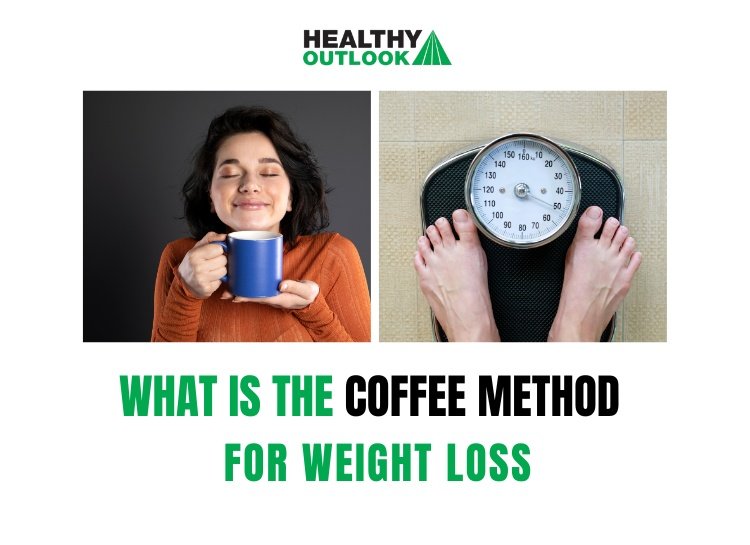What Is the Coffee Method for Weight Loss
You've probably seen it pop up on your feed: people talking about using coffee to help them lose weight. It sounds pretty simple, right? Just drink some coffee and watch the pounds melt away. But is there actually anything to this 'coffee method for weight loss,' or is it just another internet trend that won't stick around? We're going to look into what people are saying, what the science suggests, and if adding more coffee to your day is really a good idea for your health and your waistline.
Key Takeaways
Coffee's caffeine can give your metabolism a little boost and might help you feel less hungry, which are two things that could help with weight management.
Some people try different coffee routines, like drinking it black before meals or adding things like lemon or cinnamon, hoping to get more benefits.
Experts have different views on how effective coffee really is for losing weight, and they stress that it's important to be careful about how much you drink.
Drinking too much coffee can cause problems like feeling jittery or having an upset stomach, and it can also interfere with some medications.
For the best results, think about how coffee fits into your whole diet and lifestyle, and don't just rely on it as the only way to manage your weight.
Understanding the Coffee Method for Weight Loss
The "coffee method weight loss” trend has gained traction, but what's the real story? It's more than just a morning caffeine fix. Let's break down the science and see what makes this approach tick.
The Role of Caffeine in Metabolism
Caffeine, the main ingredient in coffee, is known for its stimulating effects. It can boost your metabolic rate, which is the rate at which your body burns calories. This boost, however, is often modest and varies from person to person. Factors like age, caffeine tolerance, and genetics play a role. It's not a magic bullet, but it can be a helpful tool. Think of it as a small nudge in the right direction.
Appetite Suppression and Coffee Consumption
One of the proposed benefits of the coffee hack to lose weight is its potential to suppress appetite. Some studies suggest that caffeine can reduce feelings of hunger, leading to lower calorie intake. However, this effect isn't universal. Some people may not experience any noticeable change in their appetite, while others might find the effect diminishes over time with regular coffee consumption. It's also worth noting that the type of coffee and what you add to it (sugar, cream, etc.) can significantly impact its effect on appetite and overall calorie intake.
Enhancing Workout Performance with Coffee
Coffee can be a pre-workout ally. Caffeine can improve alertness and reduce perceived exertion, making workouts feel easier. This can lead to increased endurance and better performance. Many athletes use caffeine strategically before training or competition. However, it's important to find the right dosage for you, as too much caffeine can lead to jitters and anxiety, which can hinder performance. Consider starting with a small amount and gradually increasing it to find your sweet spot. Remember to stay hydrated, as caffeine can have a diuretic effect. Some people swear by this coffee weight loss hack to kick start their fitness journey.
It's important to remember that the coffee method is not a standalone solution for weight loss. It works best when combined with a balanced diet and regular exercise. Relying solely on coffee for weight loss can lead to unhealthy habits and potential side effects.
Variations of the Coffee Method
Black Coffee before Meals
One common approach to what is the coffee method involves drinking black coffee before meals. The idea is that caffeine can help suppress your appetite, leading you to eat less during your meal. This can contribute to a calorie deficit, which is essential for weight loss. Some people find that drinking a cup of black coffee about 30 minutes before eating helps them feel fuller and more satisfied with smaller portions. However, it's important to note that this method may not work for everyone, and individual responses can vary.
Adding Lemon to Your Coffee
Another variation gaining traction is adding lemon to your coffee. Proponents claim this combination boosts metabolism and fat burning. While there's limited scientific evidence to support these claims directly, lemon does contain vitamin C and antioxidants, which are beneficial for overall health. The acidity of lemon might also aid in digestion for some individuals. However, it's crucial to understand that adding lemon to coffee is unlikely to be a magic bullet for weight loss. It's more likely that any benefits are due to a combination of factors, including the caffeine from the coffee and the potential digestive benefits of lemon. You can explore different brewing methods to maximize the antioxidant content of your coffee.
Incorporating Cinnamon for Health Benefits
Adding cinnamon to your coffee is another popular variation. Cinnamon is known for its potential health benefits, including its ability to help regulate blood sugar levels. Stable blood sugar can reduce cravings and prevent energy crashes, which can indirectly support weight management. Furthermore, cinnamon adds a touch of sweetness without the need for added sugar, making your coffee more palatable without extra calories. Here are some potential benefits of adding cinnamon:
Improved blood sugar control
Reduced cravings
Enhanced flavor without added sugar
It's important to remember that while these variations might offer some benefits, they are not substitutes for a balanced diet and regular exercise. Weight loss is a complex process, and sustainable results require a holistic approach.
Expert Perspectives on Coffee and Weight Management
Dietitian Insights on Coffee's Efficacy
Dietitians often view coffee as a potential aid in weight management, but with important caveats. They emphasize that coffee alone is not a magic bullet for weight loss. Instead, it can be a helpful tool when combined with a balanced diet and regular exercise. Dietitians also highlight the importance of considering individual differences in caffeine sensitivity and metabolic responses. They might suggest keeping a food diary to track how coffee affects your appetite and energy levels throughout the day. It's all about understanding how your body reacts.
Medical Opinions on Safe Coffee Intake
Medical professionals generally agree that moderate coffee consumption can be part of a healthy lifestyle for most adults. However, they caution against excessive intake, which can lead to adverse effects such as anxiety, insomnia, and heart palpitations. The safe upper limit is typically around 400 milligrams of caffeine per day, equivalent to about four cups of brewed coffee. Doctors also stress the importance of considering underlying health conditions, such as heart problems or anxiety disorders, which may be exacerbated by caffeine. It's always a good idea to discuss your coffee habits with your doctor, especially if you have any pre-existing health concerns. They can provide personalized advice based on your individual needs and medical history. Remember to check caffeine levels in your coffee.
Separating Fact from Fad in Weight Loss Trends
In the world of weight loss, it's easy to get caught up in the latest trends. When it comes to coffee, experts urge consumers to distinguish between scientifically supported benefits and unsubstantiated claims. While coffee may offer some advantages for weight management, such as boosting metabolism and suppressing appetite, it's crucial to recognize that these effects are often modest and vary from person to person. Beware of exaggerated claims or quick-fix solutions that promise dramatic results with coffee alone. A sustainable approach to weight loss involves a holistic strategy that includes a healthy diet, regular physical activity, and mindful lifestyle choices. Here are some things to consider:
Look for evidence-based information from reputable sources.
Be wary of anecdotal evidence or testimonials.
Consult with a healthcare professional for personalized guidance.
It's important to remember that weight loss is a complex process influenced by various factors, including genetics, hormones, and lifestyle. Coffee can be a helpful addition to a healthy routine, but it's not a substitute for a balanced diet and regular exercise. Don't fall for the paradox of choice when it comes to weight loss strategies.
Potential Risks and Considerations
While the coffee method might seem like a simple way to manage weight, it's important to be aware of the potential downsides. It's not a magic bullet, and for some people, it can actually cause more harm than good. Let's look at some key things to keep in mind.
Risks of Overconsumption and Caffeine Sensitivity
Drinking too much coffee can lead to some pretty unpleasant side effects. For those sensitive to caffeine, even a moderate amount can cause jitters, anxiety, and insomnia. Overdoing it can also lead to heart palpitations and increased blood pressure. It's really important to listen to your body and know your limits. Some people can handle several cups a day, while others might struggle with just one. It's all about finding what works for you, without pushing it too far. If you are experiencing caffeine sensitivity, you should consult with your doctor.
Addressing Digestive Issues from Coffee
Coffee, especially on an empty stomach, can cause digestive problems for some. It can increase stomach acid production, leading to heartburn, acid reflux, or even stomach upset. Acidity is a key factor here. Some people find that switching to a lower-acid coffee or drinking it with food can help.
Here are a few things to consider:
Try different types of coffee (light vs. dark roast).
Drink coffee after meals, not before.
Consider taking antacids if symptoms persist.
It's worth noting that everyone's digestive system reacts differently. What works for one person might not work for another. If you're experiencing persistent digestive issues, it's always a good idea to talk to a doctor or registered dietitian.
Interactions with Medications and Health Conditions
Coffee can interact with certain medications and may not be suitable for everyone with pre-existing health conditions. For example, caffeine can interfere with medications for heart conditions, anxiety, and thyroid problems. If you have any underlying health issues, such as high blood pressure, heart problems, or anxiety disorders, it's crucial to talk to your doctor before regularly using coffee as a weight management tool. They can help you assess the potential risks and benefits based on your individual health profile. It's always better to be safe than sorry when it comes to your health. Always check for medication interactions.
Who Can Benefit Most from the Coffee Method?
The "coffee method" isn't a one-size-fits-all solution, but certain individuals might find it particularly helpful in their weight management journey. It's all about understanding how coffee interacts with your body and lifestyle.
Individuals Seeking a Metabolism Boost
Coffee, thanks to its caffeine content, can give your metabolism a temporary kick-start. This can be beneficial for those whose metabolisms might be a bit sluggish, perhaps due to age or lifestyle factors. However, it's important to remember that this boost is often short-lived and shouldn't be relied upon as the sole method for weight loss. Think of it as a small nudge in the right direction, not a complete overhaul. For a more sustained approach, consider mushroom coffee.
Those Looking for Natural Appetite Control
One of coffee's most talked-about effects is its ability to suppress appetite. For people who struggle with overeating or frequent snacking, a cup of coffee before a meal might help them feel fuller and consume fewer calories. However, this effect varies from person to person. Some might experience a noticeable reduction in hunger, while others might not feel much of a difference. It's also worth noting that relying solely on coffee for appetite control isn't a sustainable long-term strategy. A balanced diet and mindful eating habits are still key.
Athletes and Fitness Enthusiasts
Coffee can be a pre-workout ally for athletes and fitness enthusiasts. Caffeine can enhance endurance, reduce perceived exertion, and improve focus during workouts. This can translate to more effective training sessions and potentially better results. However, it's crucial to be mindful of timing and dosage. Consuming too much coffee too close to a workout can lead to jitters or digestive discomfort. Experiment to find the right amount that works for you, and always prioritize hydration.
It's important to remember that the "coffee method" is not a magic bullet. It's most effective when combined with a healthy diet, regular exercise, and a balanced lifestyle. If you have any underlying health conditions or concerns, it's always best to consult with a healthcare professional before making significant changes to your diet or caffeine intake.
Practical Tips for Safe and Effective Use
Recommended Daily Coffee Intake
Okay, so you're thinking about using coffee to help with weight loss? Great! But let's not go overboard. The key here is moderation. Most experts agree that around 400 milligrams of caffeine per day is safe for most adults. That's roughly four cups of brewed coffee. But remember, everyone reacts differently. Start with one or two cups and see how you feel. Are you jittery? Anxious? Maybe dial it back. Also, be mindful of the caffeine content in different types of coffee, as it can vary quite a bit.
Choosing the Right Type of Coffee
Not all coffee is created equal! If you're serious about the coffee method, ditch the sugary lattes and fancy frappuccinos. We're talking plain, black coffee here. Think about it: all those added sugars and fats will completely negate any potential weight loss benefits. Opt for freshly brewed coffee, or even cold brew, which tends to be less acidic. Also, consider the roast. Some believe that lighter roasts retain more antioxidants, which could offer additional health perks. Here's a quick comparison:
| Coffee Type | Sugar Content | Calorie Count | Potential Benefits |
|---|---|---|---|
| Black Coffee | 0g | ~2 calories | Metabolism boost, appetite suppression |
| Latte | 15–20g | 100–150 calories | Minimal, due to added sugar |
| Frappuccino | 50+g | 400+ calories | None, counterproductive |
Integrating Coffee into a Balanced Diet
Listen up: coffee is not a magic bullet. You can't just drink coffee all day and expect the pounds to melt away. It needs to be part of a healthy lifestyle. That means eating a balanced diet full of fruits, vegetables, and lean protein. It also means getting regular exercise. Think of coffee as a tool to support your efforts, not the entire solution. A balanced diet is the foundation for sustainable weight management.
Don't skip meals or replace them with coffee. This can lead to nutrient deficiencies and rebound hunger later on. Instead, enjoy your coffee alongside a nutritious breakfast or as a mid-afternoon pick-me-up. Remember, consistency is key for long-term success.
And don't forget to drink plenty of water! Coffee can have a diuretic effect, so staying hydrated is super important. Consider having a glass of water before and after your cup of coffee. This will help you stay hydrated and prevent any unwanted side effects. Remember, caffeine and antioxidants can help with weight management, but they work best when combined with a healthy lifestyle.
Beyond the Buzz: Long-Term Health Implications
Coffee's Impact on Cardiovascular Health
Coffee's effect on your heart is something to think about. For many, moderate coffee drinking doesn't pose a big risk and might even have some protective qualities. However, it's not a one-size-fits-all situation. People react differently. Some might see a slight increase in blood pressure or heart rate, while others don't notice any change. If you have existing heart problems, it's a good idea to talk to your doctor about how much coffee is safe for you.
Bone Density and Coffee Consumption
There's been some worry about coffee affecting bone density, especially for women. Some studies suggest that high caffeine intake could interfere with calcium absorption, potentially leading to bone loss over time. To counter this, make sure you're getting enough calcium and vitamin D in your diet. Here are some ways to help:
Eat calcium-rich foods like dairy, leafy greens, and fortified products.
Consider a calcium supplement, especially if you don't get enough from food.
Get regular weight-bearing exercise to strengthen your bones.
Overall Wellness and Coffee Habits
How coffee fits into your overall lifestyle really matters. It's not just about the coffee itself, but also what else you're doing. Are you getting enough sleep? Are you managing stress? Are you eating a balanced diet? All these things play a role in how coffee affects you. A mortality rates study can help you understand the impact of coffee consumption on your health.
Think of coffee as one piece of a bigger puzzle. It can be a helpful tool for some, but it's not a magic bullet. Pay attention to how your body reacts, and make adjustments as needed. It's all about finding what works best for you in the long run.
Wrapping It Up: Coffee and Your Health Goals
So, what's the deal with the 'coffee method' for losing weight? It's not some magic bullet, that's for sure. While coffee can give you a little boost, like helping you feel less hungry or giving you energy for a workout, it's just one piece of the puzzle. You can't just drink coffee and expect big changes. Real, lasting weight loss comes from eating well, moving your body, and making good choices every day. If you're thinking about trying the coffee method, just be smart about it. Don't overdo it, and always listen to your body. And hey, talking to a doctor or a dietitian is always a good idea before you make any big changes to your diet. They can help you figure out what's best for you.
Frequently Asked Questions
What exactly is the 'coffee method' for losing weight?
The 'coffee method' is a popular idea, especially online, that suggests drinking coffee can help you lose weight. It's thought that coffee can speed up your body's calorie burning, make you feel less hungry, and even boost your energy for workouts.
How does coffee supposedly help with weight loss?
Coffee has caffeine, which is a stimulant. This caffeine can make your body burn more calories, even when you're just resting. It might also help you feel full, so you eat less. Plus, it can give you a jolt of energy, which is great for exercising.
Are there different ways to try the coffee method?
Some people drink plain black coffee before meals to curb their appetite. Others add things like lemon, which is believed to help with digestion, or cinnamon, which has some health benefits and can help manage blood sugar.
What do doctors and dietitians say about this method?
Experts generally agree that coffee can be part of a healthy diet, but they emphasize that it's not a magic bullet for weight loss. They suggest focusing on a balanced diet and regular exercise, with coffee as a possible helper, not the main solution.
Are there any downsides or risks to drinking a lot of coffee for weight loss?
Drinking too much coffee can make you feel jittery, anxious, or have trouble sleeping. It can also upset your stomach or cause heartburn in some people. If you have certain health conditions or take medications, coffee might not be a good idea, so it's always smart to check with your doctor.
How much coffee is okay to drink if I'm trying this method?
It really depends on the person. Most adults can safely drink up to 400 milligrams of caffeine a day, which is about four cups of regular coffee. But everyone is different, so pay attention to how your body reacts.





